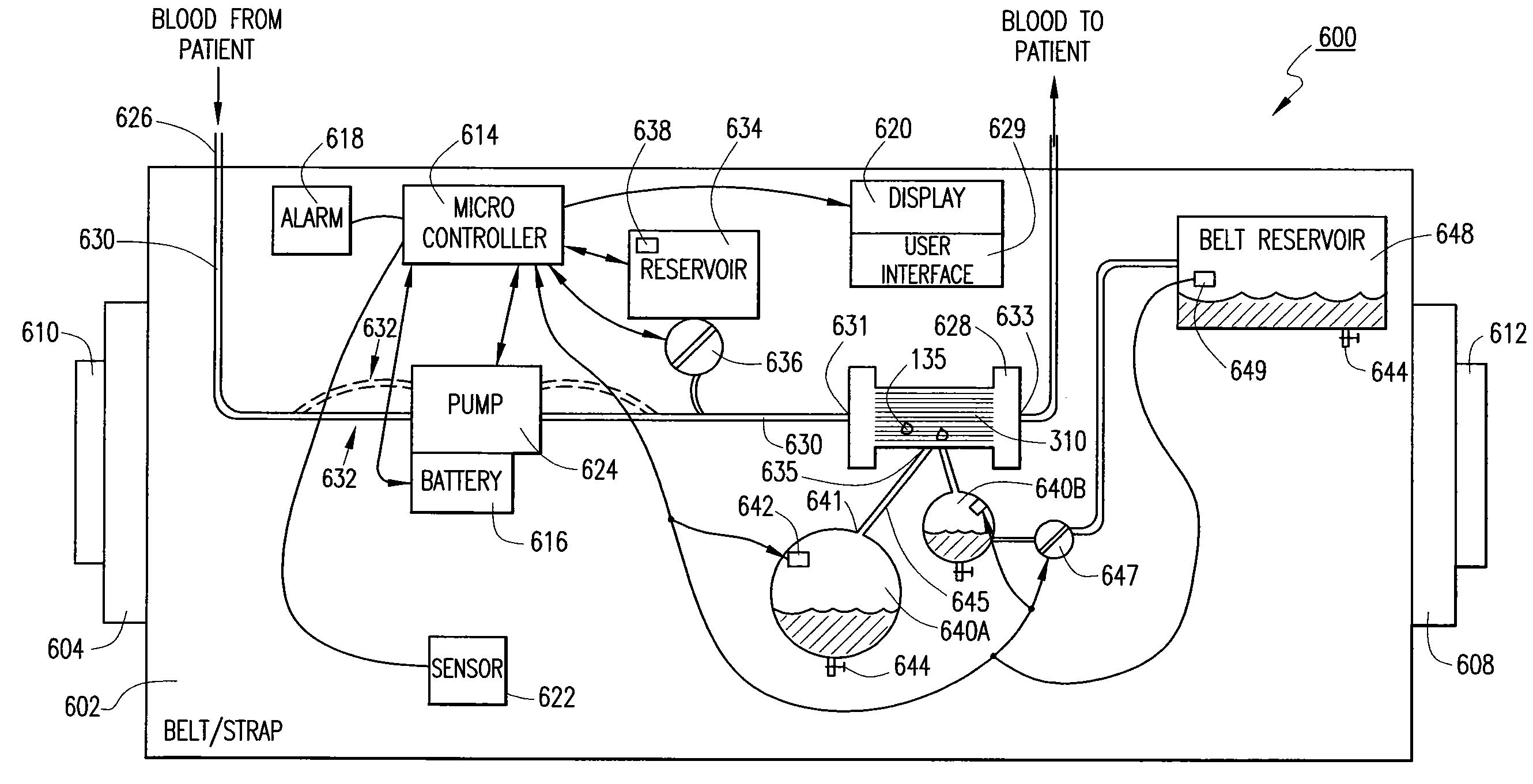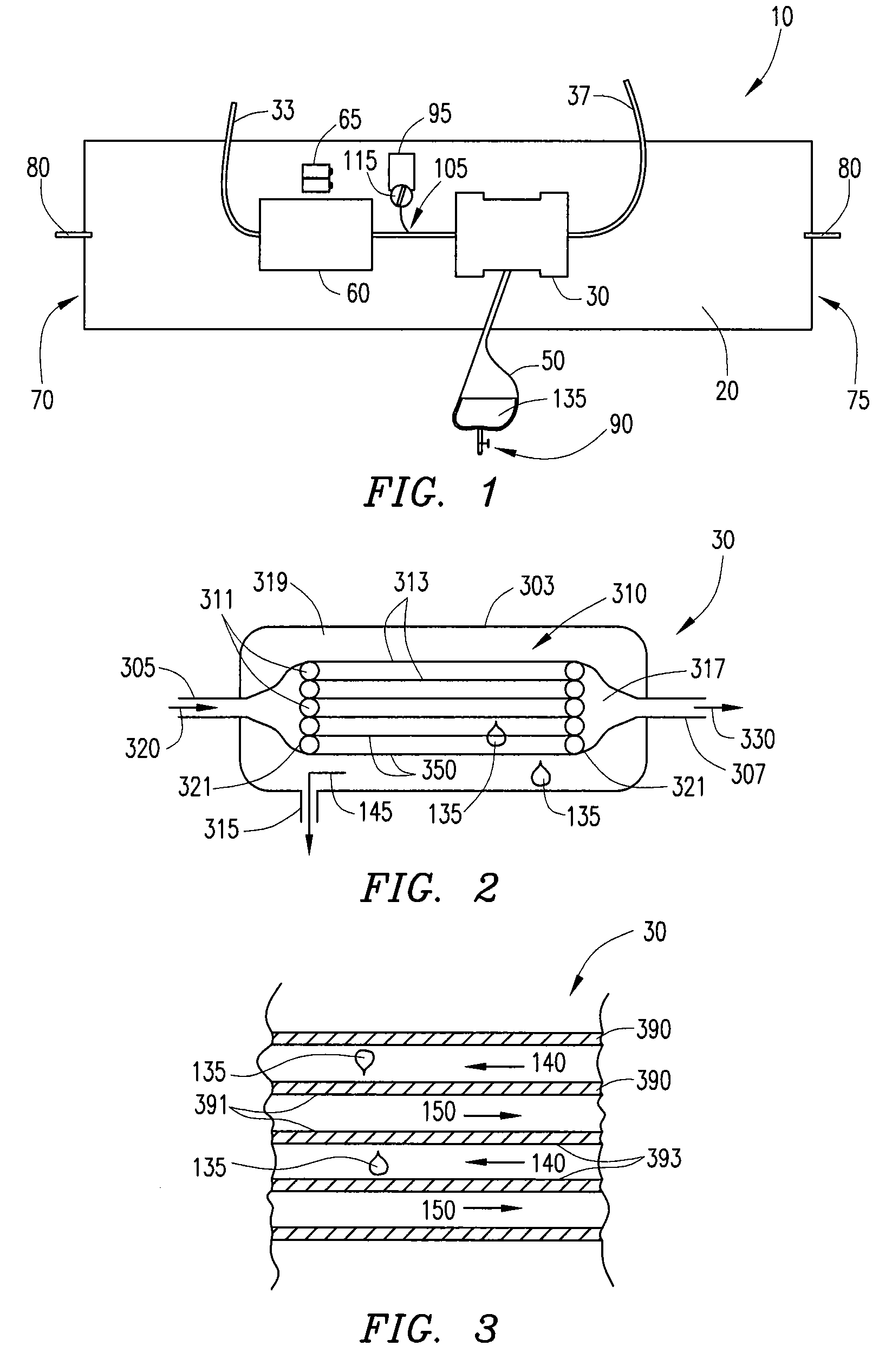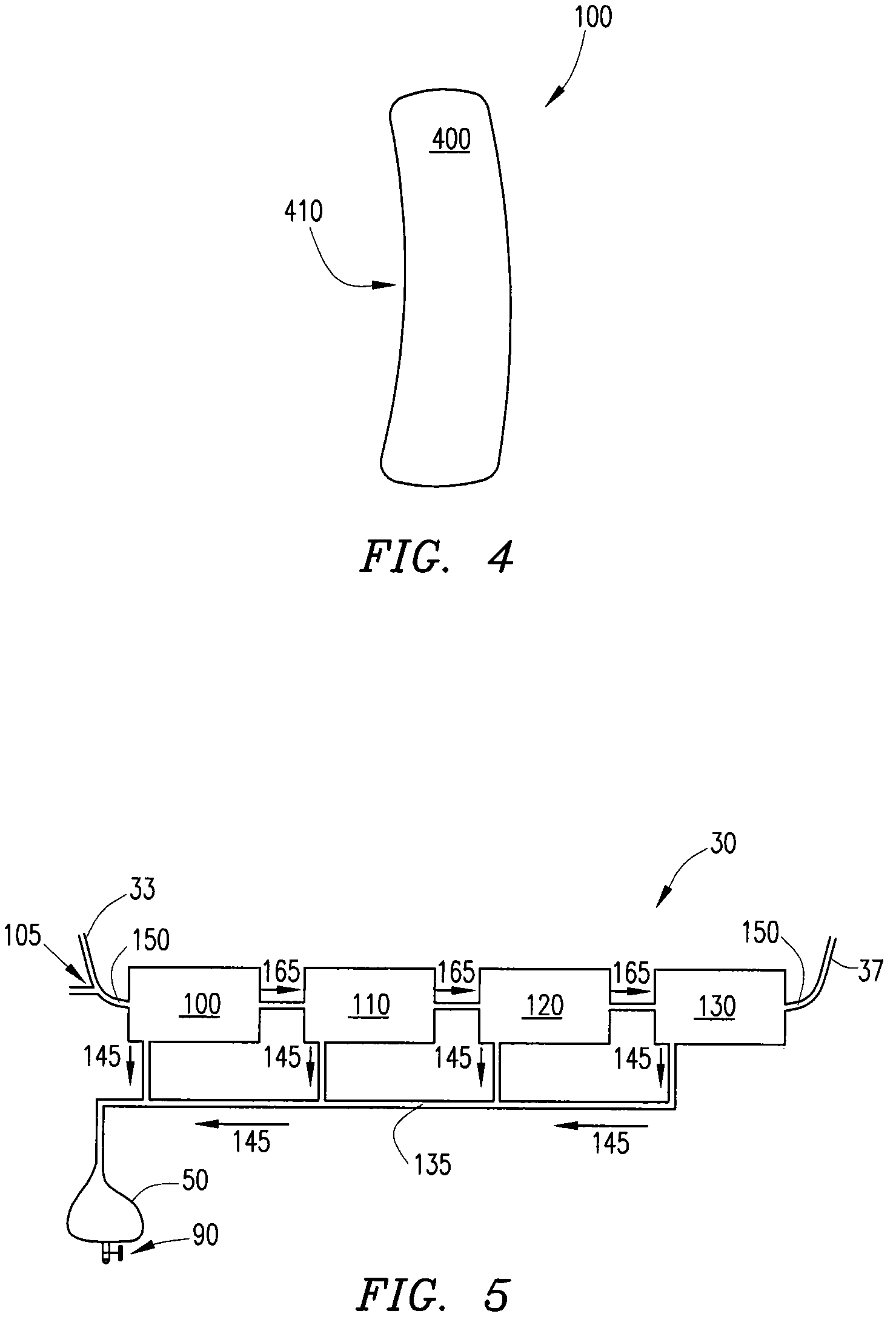Wearable ultrafiltration device
a technology of ultrafiltration device and ultrafiltration chamber, which is applied in the direction of solvent extraction, membranes, separation processes, etc., can solve the problems of increased fluid retention, decreased pumping capacity, and inability to pump enough blood to support vital organs, so as to prevent shortness of breath and swelling, and remove excess fluid. smooth
- Summary
- Abstract
- Description
- Claims
- Application Information
AI Technical Summary
Benefits of technology
Problems solved by technology
Method used
Image
Examples
Embodiment Construction
[0028]Ultrafiltration is a process by which excess fluid in the form of water is removed from the blood, wherein the excess fluid in the blood is moved from one side of a filtering device to another. The filtering device contains many hollow fibers made out of a semipermeable membrane. While blood flows inside of the hollow fibers, water and fluid from the blood moves through the membrane wall and is drained off. The purified blood remains inside the hollow fibers and is returned to the body.
[0029]Referring to FIG. 1, an ultrafiltration device 10 is designed to extract a targeted volume of fluid from the blood of a patient at a precisely controlled rate. The ability to predictably remove excess fluid from the blood reduces the risk of removing too much fluid too quickly, which can result in low blood pressure and vital organ damage.
[0030]The ultrafiltration device 10 comprises a belt 20 adapted to be worn about a portion of the body of the patient. According to some embodiments, the...
PUM
| Property | Measurement | Unit |
|---|---|---|
| flow rate | aaaaa | aaaaa |
| flow rate | aaaaa | aaaaa |
| flow rate | aaaaa | aaaaa |
Abstract
Description
Claims
Application Information
 Login to View More
Login to View More - R&D
- Intellectual Property
- Life Sciences
- Materials
- Tech Scout
- Unparalleled Data Quality
- Higher Quality Content
- 60% Fewer Hallucinations
Browse by: Latest US Patents, China's latest patents, Technical Efficacy Thesaurus, Application Domain, Technology Topic, Popular Technical Reports.
© 2025 PatSnap. All rights reserved.Legal|Privacy policy|Modern Slavery Act Transparency Statement|Sitemap|About US| Contact US: help@patsnap.com



